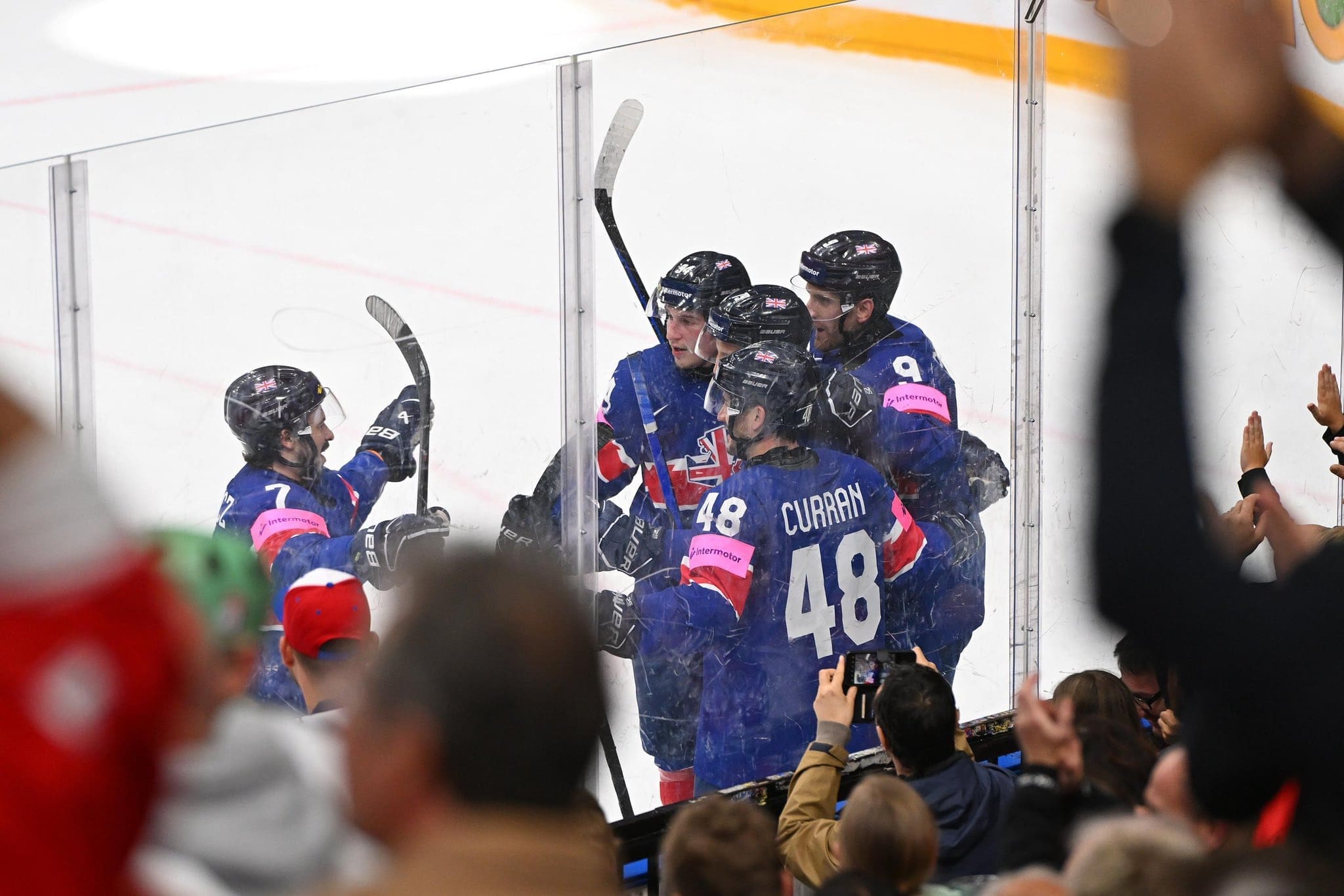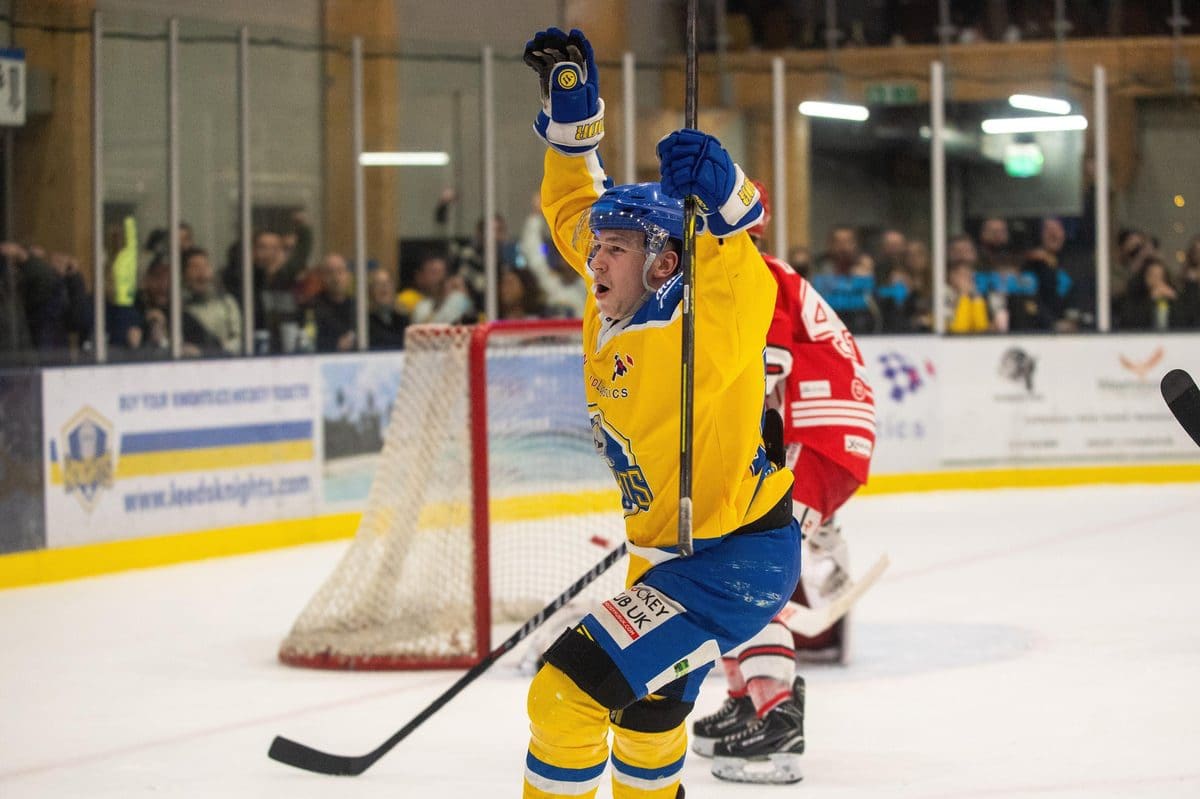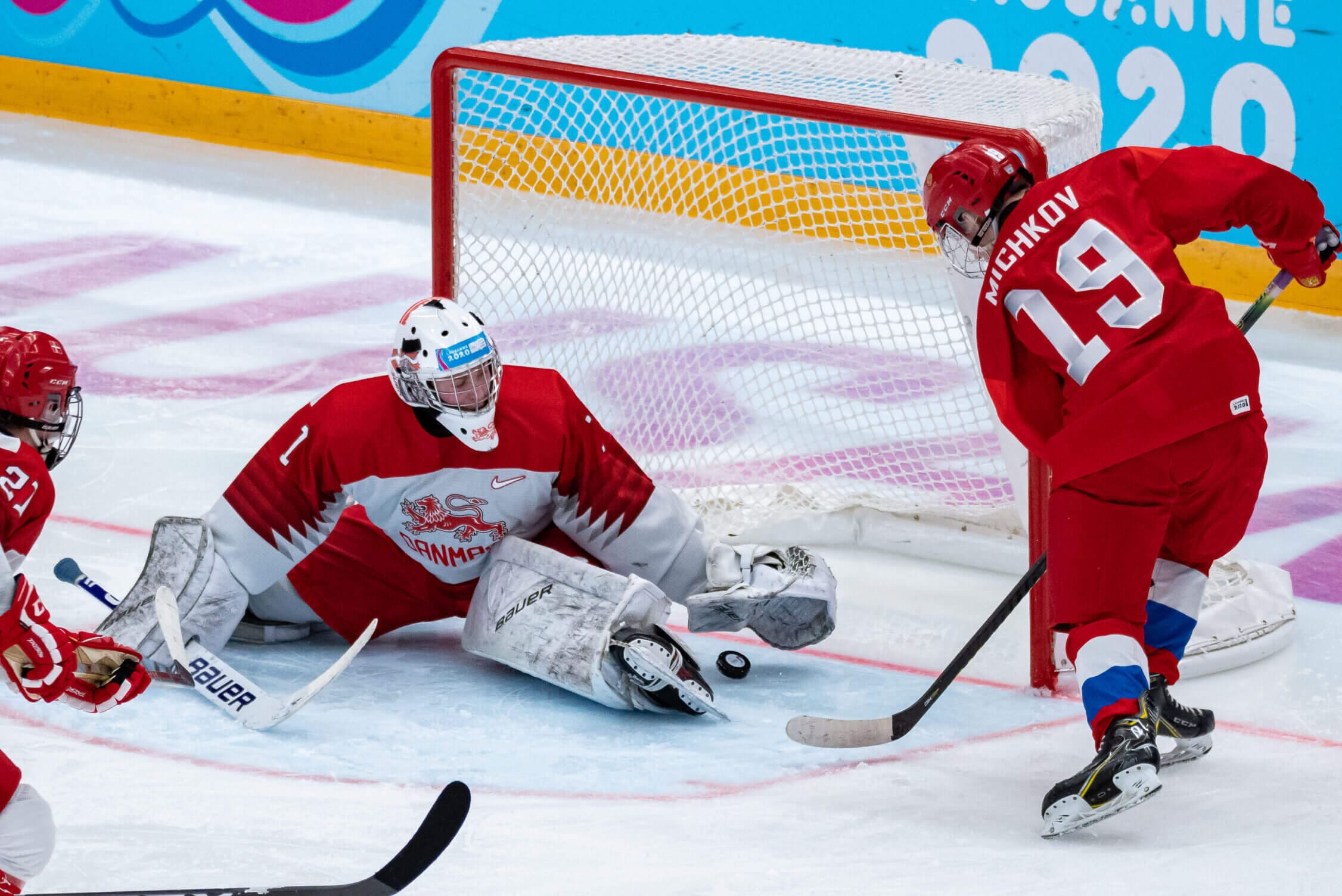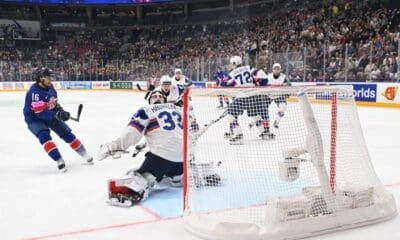Defeat to Denmark in their fourth round robin fixture of the tournament has left Team Great Britain’s IIHF World Championship survival hopes hanging by a thread.
Pete Russell’s side made the perfect start in Prague, with Liam Kirk racing into the offensive zone and beating Frederik Bichow with an individual wraparound finish within five minutes of puck drop.
However, the Danes counter-punched a minute later, scoring a highlight reel goal of their own off Mikkel Aagaard’s stick and erasing Team GB’s only lead of the afternoon.
Phillip Bruggisser and Cade Neilson took turns adding their names to the scoresheet to round out the opening period, before Agaard and Nathanael Halbert exchanged markers in period two to set up a nail-biting finale.
While Team GB enjoyed the lion’s share of chances in the final frame, it was Denmark who prevailed, with Christian Wejse netting on the powerplay to secure all three points.
“Huge effort from us,” said assistant captain Mark Richardson. “I think after three really tough games, to come into this one and bring that effort, it was great by everybody. But it sucks right now. You know, we were right there and we had our chances.”
With that in mind, here are three takeaways from Team GB’s 4-3 loss against Denmark.
Team GB crumbled in the moments that mattered versus Denmark
Team GB were the architects of their own downfall against Denmark, who played with the freedom and intensity of a relegation-immune nation.
Russell’s top six forwards tilted the ice steeply against the Danes in the opening exchanges, with Kirk converting early dominance into an early goal with a piece of individual brilliance from the left flank.

Mark Richardson, Team GB (Image: Dean Woolley)
But Team GB’s lead evaporated within a 61-second span.
Granted, it took a similarly brilliant play from Denmark’s burgeoning star, 19-year-old Oscar Moelgaard, to level the score – but it was a goal that Jackson Whistle could ill-afford to concede.
Denmark doubled down on the power play minutes later, punishing Sean Norris for an avoidable kneeing incident in centre ice, and struck a hammer blow to Team GB’s survival hopes at the start of the second period with another momentum-killing go-ahead goal.
Russell’s men have a habit for starting periods slowly, allowing their opponents to equalise quickly, and taking poor penalties – which doomed them in the third period when Denmark scored the game-winner on a cheap powerplay.
It’s another painful case of ‘so close, yet so far’ for a team desperate for points in the fight for survival.
It’s time to unite Liam Kirk and Cade Neilson on Team GB’s first line
Kirk and Neilson are Team GB’s main offensive threats and the time has come for them to be united on the first line.
Brett Perlini has one point in four appearances while centering Kirk’s line, spurning three high-danger scoring chances against Denmark and a clear-cut breakaway against Switzerland.

Brett Perlini, Team GB (Image: Dean Woolley)
Team GB cannot afford to waste the chances they create or have their opponents stymie Kirk by following him around the ice.
Elevating Neilson to the first line would lighten the load on Kirk – who is thriving regardless – and create more space for Russell’s first line to thrive.
Team GB have a mountain to climb at the IIHF World Championship
Results elsewhere mean that Team GB need to seize at least four points from their remaining three games to avoid relegation to Division 1A.
With Czechia flying high on home ice, let’s pencil in a loss on Saturday [18 May] and turn our attention to absolute must-win encounters against Norway and Austria.
The Austrians have four points, the Norwegians have three, and the Brits are pointless. It’s all or nothing from here on out.











